New Translations: Our Recommendations
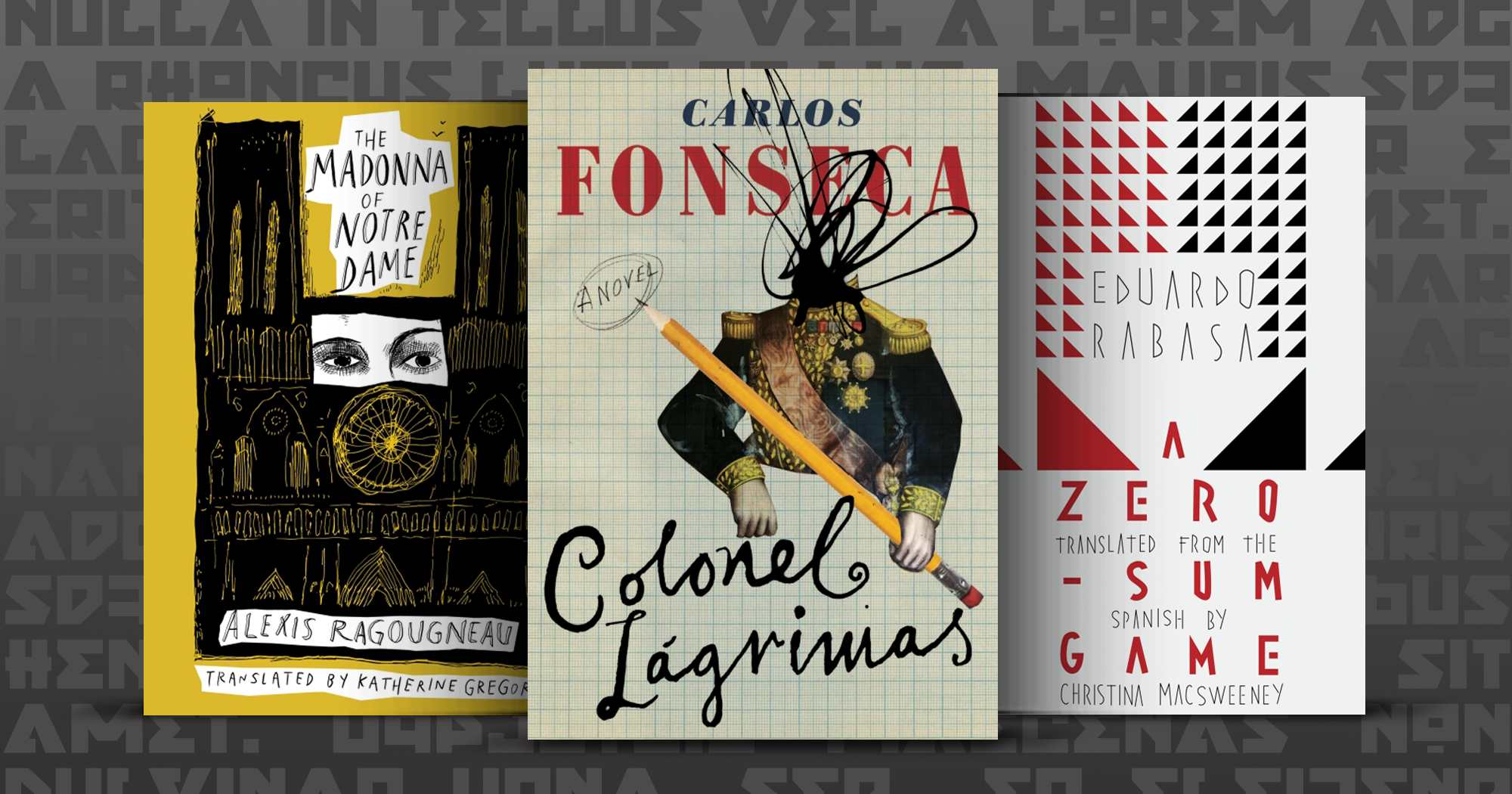
It’s easy to be in awe of a translation—the intricacies of content and context that make the author’s message comes across in the new language. To get the beauty from another language that no one but a translator can give you, check out of one these translated works from our Winter 2017 issue.
A Zero Sum Game
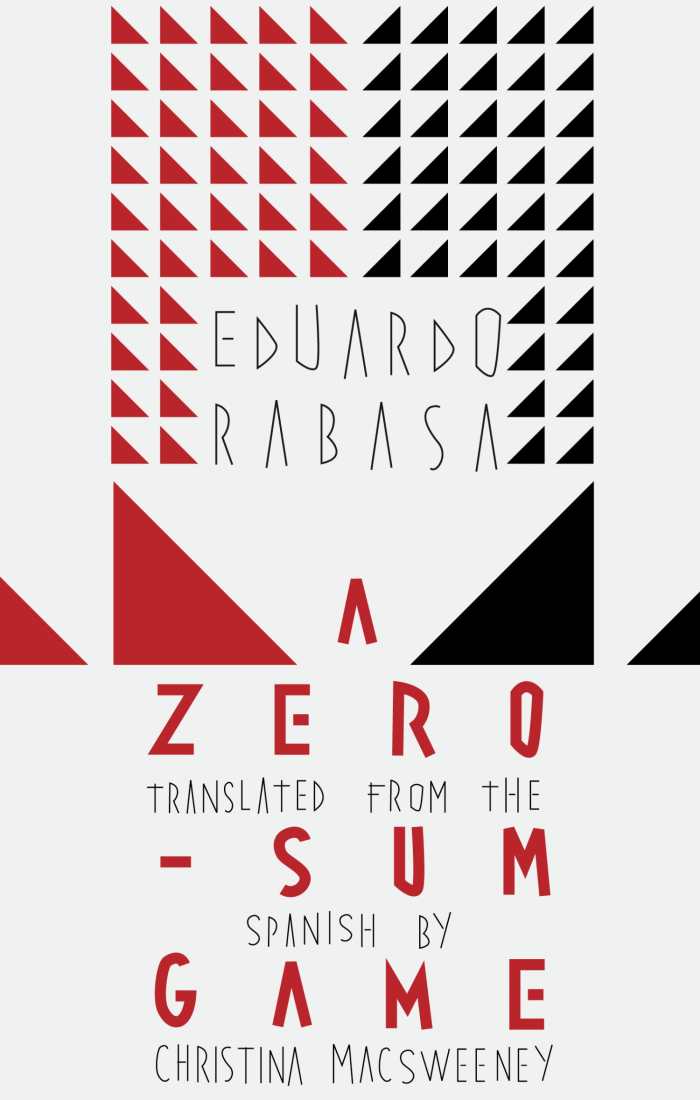
Eduardo Rabasa
Christina MacSweeney, translator
Deep Vellum Publishing
Softcover $15.95 (400pp)
978-1-941920-38-1
Buy: Local Bookstore (Bookshop), Amazon
With echoes of 1984 and Brave New World, Rabasa delivers a forceful, hysterical debut that’s one for the political ages.
“Outside of vague moral notions and Manichean fables, truth was, in reality, no use at all,” muses a character on his deathbed, in Eduardo Rabasa’s ambitious, oft-hilarious political farce, A Zero-Sum Game. Absurdly surreal lines like this abound in the trenchant satire, and in an American election year like none before, this translation of a Mexican novel resonates as eerily prophetic.
Rabasa takes the highly orchestrated maneuvers of a typical presidential campaign and applies them to an intensive eleven-day micro-election between a stalwart political power monger, Selon Perdumes, and a personally embattled political upstart Max Michels, as they campaign for control of a fictitious squalid suburb known as Villa Miserias.
Literary devices are used to lampoon everything from plastic surgery to social and cognitive linguistics to law enforcement. A multitudinous cast features the forlorn college dropout Max, as well as an outcast group that includes a metaconceptual artist, a reporter, and a slumlord villain.
With a plethora of social ills to choose from, Rabasa utilizes many to superb comic effect. His deft handling of law enforcement manages to ridicule the drug-addled police force, the Black Paunches, and enterprising drug dealers equally well. He manages the difficult task of remaining both political and incisive, all while maintaining character development and plot. Rabasa’s authorial finesse with satire, although uproarious, does diffuse the narrative flow of the story at times, but in such an entertaining fashion that it’s easily forgivable.
Much of the book’s humor is effective in great part thanks to Christina MacSweeney’s translation, a Sisyphean task, considering the demands of Rabasa’s world building and intricacy of the text.
With echoes of 1984 and Brave New World, Rabasa delivers a forceful, hysterical debut that’s one for the political ages. This timely novel riffs on challenges that are at the fore globally—drugs, poverty, and class division. A Zero Sum Game is a welcome addition to contemporary Mexican literature, with a voice and intellect that is astute and vibrant, providing much-needed commentary on Mexican-American relations and the abuses of capitalism.
MONICA CARTER (November 28, 2016)
Colonel Lágrimas
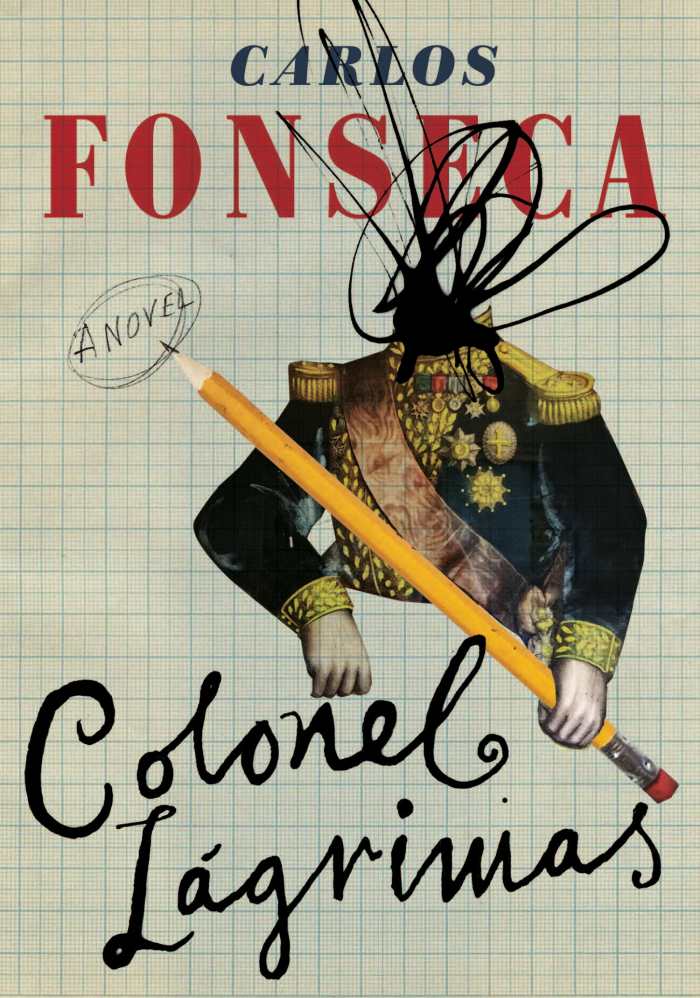
Carlos Fonseca Suárez
Megan McDowell, translator
Restless Books
Softcover $15.99 (224pp)
978-1-63206-103-4
Buy: Local Bookstore (Bookshop), Amazon
Knowledge is a form of both escape and imprisonment, in this intricate and prismatic novel.
In beautifully detached prose, Carlos Fonseca Suárez’s Colonel Lágrimas weaves the past and present together in an intricate web of memory.
Colonel Lágrimas is based loosely on the life of German-born Alexander Grothendieck, whose parents opposed fascism during the Spanish Civil War and whose father died at Auschwitz. The elegantly introduced colonel of the novel is an elderly, eccentric mathematician, living alone with his own genius “among a disarray of books and tobacco.” He has opted for a hermit’s existence among the Pyrenees’ “green and white mountains,” hoping that when death does find him, he will be at peace.
For the colonel, knowledge is a form of both escape and imprisonment. Facts compete with memories, and he strives to put both in order. He seems to have lost his ability to pursue his true mathematical work, perhaps due to a breakdown or the mental deterioration of aging. He instead obsesses over a vast, encyclopedic compilation of his knowledge—and over one equation, which may represent the coded essence of years of oblivion and guilt.
The colonel is a maddening, fascinating character, evasive with both observers and himself—if understandably, given the trauma in his past. Lágrimas reaches out to Maximiliano Cienfuegos, whom he knew in his younger days in Mexico, initiating a curious correspondence. The colonel calls Maximiliano his apostle. Maximiliano dutifully receives the colonel’s erratic mailings—postcards, equations, writings—and is bewildered by the men’s strange connection, prompted by a single game of chess years ago.
As the colonel’s final project pushes him further into madness, he turns to alcohol, but even rum cannot blot out the single equation “that was at the same time his happiness and his condemnation.” More prismatic than literal, Fonseca’s novel is ambitious yet controlled work, following in the tradition of eloquent Latin American writing with its own distinct style.
MEG NOLA (November 18, 2016)
Oedipus in Brooklyn and Other Stories
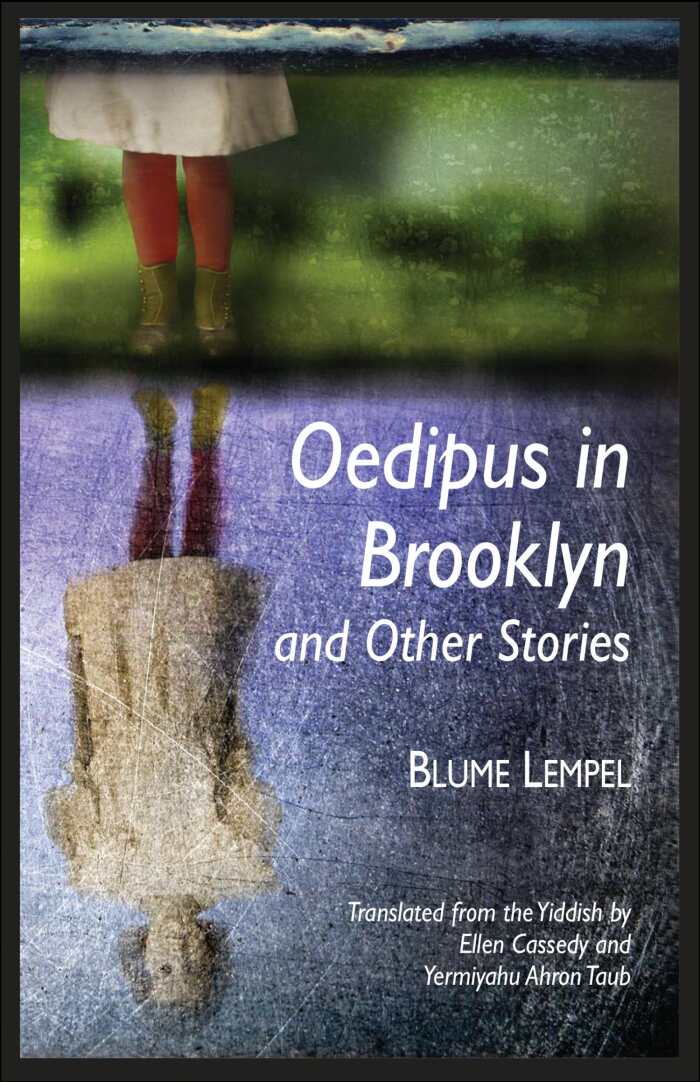
Blume Lempel
Ellen Cassedy, translator
Yermiyahu Ahron Taub, translator
Mandel Vilar Press
Softcover $16.95 (240pp)
978-1-942134-21-3
Buy: Local Bookstore (Bookshop), Amazon
These stories deserve a cherished place in the canon of Jewish literature.
Oedipus in Brooklyn gathers stories and personal essays from Blume Lempel, a Yiddish-speaking refugee who escaped the Holocaust in America but who never stopped writing about its impact upon her family and community. Stories throughout the collection are searing, both defiantly vibrant and achingly brutal, and cover topics from madness to beginning again, always with masterful attention to detail.
Stories trade between the real and the imagined. In one, a woman survives the war only to experience a total psychological break, and is haunted by the memory of the brutal villager who raped her as she hid; a heart-wrenching tribute to the author’s friend produces similar details. Lempel says Kaddish for the departed, either overtly in the course of relaying memories, or in fictionalized accounts of lives taken.
Lines strain to catch elusive moments: the light as it falls across a Pesach table; magical prisms in a distant field. Mothers reach out to children broken or departed; survivors seek revenge. Those who are left carry scars, either directly inflicted or as the result of broken bonds. Lempel’s language is poetic throughout, a gorgeous tribute to human desires and potential, even though individual works express ambivalence about the power of language, particularly at resurrecting the departed.
In the wake of tragedies, from the Holocaust to family disasters, chasms open up between characters, all of whom ache for intimacy that seems unattainable. Touch is both a balm and a thing that burns in many stories—or is sometimes both at once; sex is a recurring craving in these tales, but one never sated, and hunger, which manifests itself across settings, is similarly never satisfied.
From Italy to Brooklyn, Lempel’s characters prove incapable of outrunning the past. They try—but memories abandoned “like a stack of unsigned poems” return as specters, and trying to outrun them leaves speakers “grasping blindly like fantastical fins at the faces that swim by.”
Lempel’s lines work to make ravaged land flourish again, and what flowers forth is both lovely and heartbreaking. These are stories that deserve a cherished place in the canon of Jewish literature.
MICHELLE ANNE SCHINGLER (November 4, 2016)
The Madonna of Notre Dame
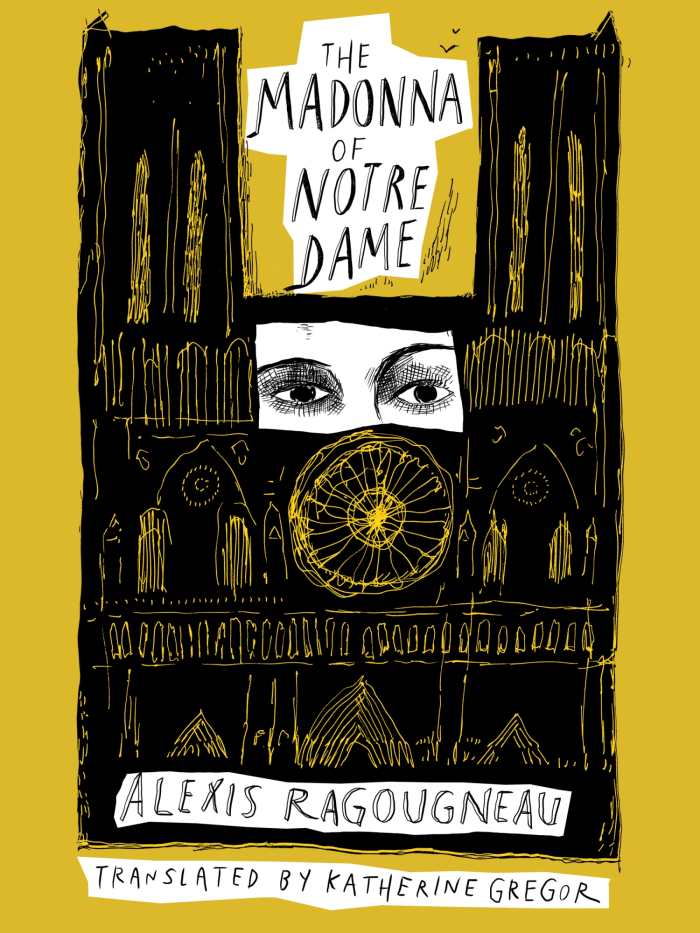
Alexis Ragougneau
Katherine Gregor, translator
New Vessel Press
Softcover $15.95 (183pp)
978-1-939931-39-9
Buy: Local Bookstore (Bookshop), Amazon
An egregious murder in a beloved church initiates a compelling whodunit in this energetic and original crime novel.
How do you catch a killer in one of the world’s most celebrated churches, particularly during the Feast of the Assumption? In playwright Alex Ragougneau’s The Madonna of Notre Dame, an egregious murder leads to a compelling whodunit.
The morning after the Feast of the Assumption mass, an American tourist discovers that the beautiful woman kneeling beside her is not praying; in fact, she is dead. The deceased is a mixture of beauty and chastity, a provocative Mary-esque package. The church is shut down and the police are called.
Ragougneau has a keen sense for character and wastes no time introducing the locals—an eccentric older woman who comes daily to the cathedral, a wizened police detective, a damaged workaholic, and a sickly priest all figure in. Over the course of seven days, austere prose is used to delve deeper and deeper into the mystery, as well as the troubles of the characters involved.
Katherine Gregor’s translation makes for a smooth read. The novel begins at a slower pace, examining each detail and possible motive. The first half of the novel is spent on a tortured young man, the first suspect; once he is disposed of, the second half moves fast to reach its verdict. The abrupt change of pace sacrifices explorations of characters’ motivations, though, and results in plot conveniences. Still, Ragougneau’s use of atmospheric detail and facts about Christianity, along with a healthy infusion of Parisian grit, make this believable work.
The exploitation of men’s fascination with virgins and prostitutes, particularly in the Notre Dame Cathedral, is a brilliant move within the murder mystery. Yet the winner here is not just Ragougneau, but all readers in search of energetic, original crime novels. The Madonna of Notre Dame maintains the notion that good still conquers evil.
MONICA CARTER (November 3, 2016)
Hannah Hohman
